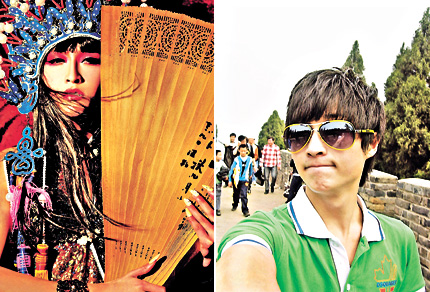Fiverr.com is a truly interesting site. People tell you what they can offer you for $5, you tell them the specifics of what you need, and within a day or two they provide it to you. (The provider gets $4; the fiverr administration keeps $1 of every transaction.)
Today, for example, a student (who happened to be Chinese) was offering to take your photo and photoshop it to make you look like a character from Avatar. Someone else was offering “the world’s best barbecue sauce recipe” (and that’s the kind of thing where you can really rack up big money – when it’s something already prepared that you can just email off to lots of curious browsers). Someone else offered to call one of your friends and sing Happy Birthday in Mandarin to them.
A friend introduced me to fiverr just yesterday. Curious about how it worked, I idiotically put up an ad saying I could write a 400-word article on any topic for $5. Within an hour I found myself with three orders for press releases, one about real estate, another about single moms raising young sons and a third about a line of soap products all made from hemp oil. It didn’t take me long to write these, but still, it was worth way more than $5. So I took down my ads. The only way to make money on this site is to have something pre-written that you can then tweak, refashion and recycle for multiple use, like a barbecue recipe. Once you figure out the formula, you can actually make a lot of money.
All of that was a very long-winded way of getting to my very small point: A lot of service providers on fiverr are offering to put up a set number of positive comments on your blog, or to write positive reviews of your book on Amazon. In other words, they are the Made-in-the-USA version of China’s 50-centers, employed by business instead of the government.
I was especially depressed to see the offers to write Amazon book reviews. I write a lot of reviews on Amazon and I work pretty hard on them (most but not all are from reviews I put up here). And, gullible as I am, I take the reviews I read seriously. I had to wonder, how many of these glowing reviews were ordered and manufactured on sites like fiverr?
I’m not really that naive. I was always aware a lot of what we call “word of mouth” has been planted by insidious clever marketers. But it was disheartening for me to see there’s a whole cottage industry dedicated to planting BS reviews, written by anonymous sharks who never even looked at the book they’re raving about. 50-centers; pay per comment, pay per post, pay per review. It was just another reminder that you need to assume just about all the user-generated content you read on the Internet is, or at least might be, bogus. A shame.

Comments